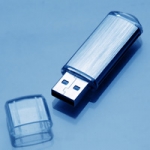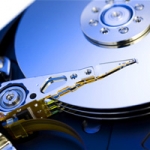- You are here:
-
Blog

-
Networthy Systems

- Tip of the Week: Avoid Buyer’s Remorse By Renting a Gadget Before Buying It
NetWorthy Systems Blog
Ever since the mid-1990s employees have been taking advantage of personal gadgets to help them get work done faster. Remember the PDAs and Palm Pilots from a decade and a half ago? Even though many companies weren't quick to establish policies to protect corporate data, tech savvy users were able to sync contacts, schedules, email, and company files to their mobile device. These days, mobile devices are in the hands of many more users, but there are ways to provide security without sacrificing your employees rights to their personal device.
USB thumb drives are fantastic. Small, portable, fast, and highly compatible; these devices make it easy to transfer files and documents from one place to another. If you are burning the midnight oil working on a presentation or document from home, a thumb drive is a fast, cheap solution for grabbing those files and taking them from one device to another. Of course, there are plenty of other alternate ways to move files that are even easier and even more fool proof (how many of you have lost a thumb drive or let one go through the wash?), so the thumb drive has been becoming less popular for businesses. If you hate to see perfectly good technology go to waste, check out these 3 tricks that give new life to your old thumb drive.
If you use email, you've probably seen spam. If you think we're talking about a canned meat product, and are wondering how it relates to email, then we envy you. For everyone else, saying your inbox probably has a little spam is a dramatic understatement.
Spam comes in several different flavors; ranging to inappropriate solicitations to unwanted gibberish to carefully coordinated scams. We're going to go over one of these tricky spoofs that is known to fool users.
RAID, you hear it everywhere. From the techs in the server room talking about it to computer manufacturers asking if you want a RAID formation for your computer's hard drive. Not all RAID configurations are considered equal. Here's an explanation of RAID formats in plain English.




